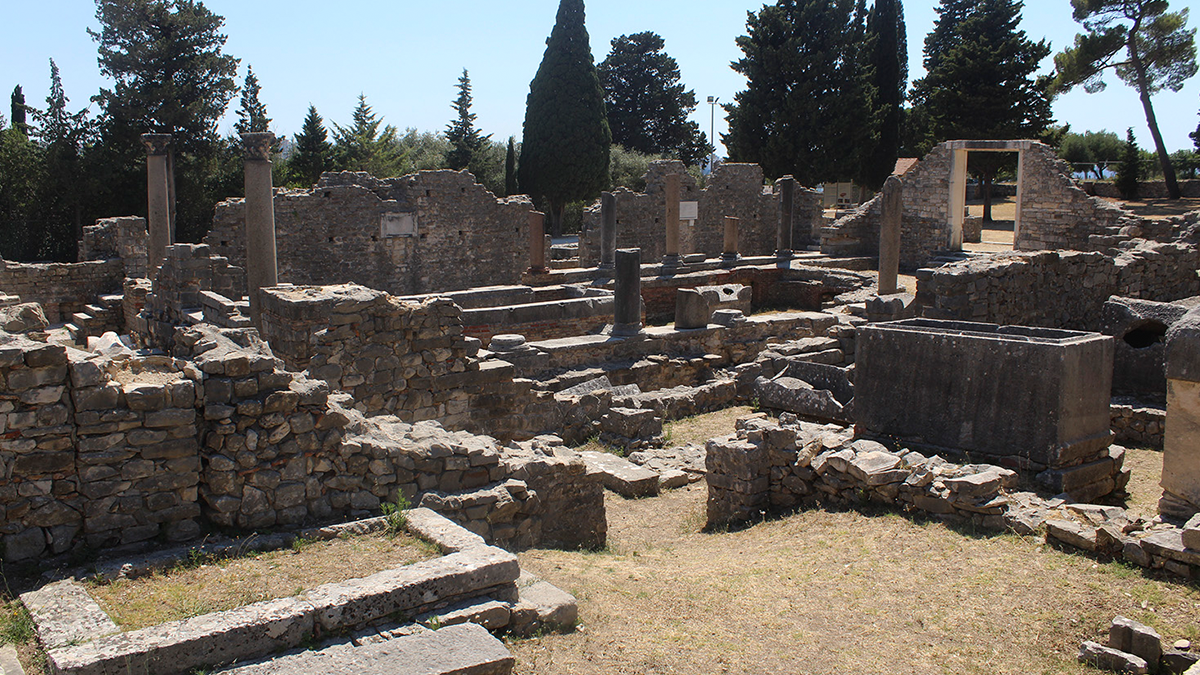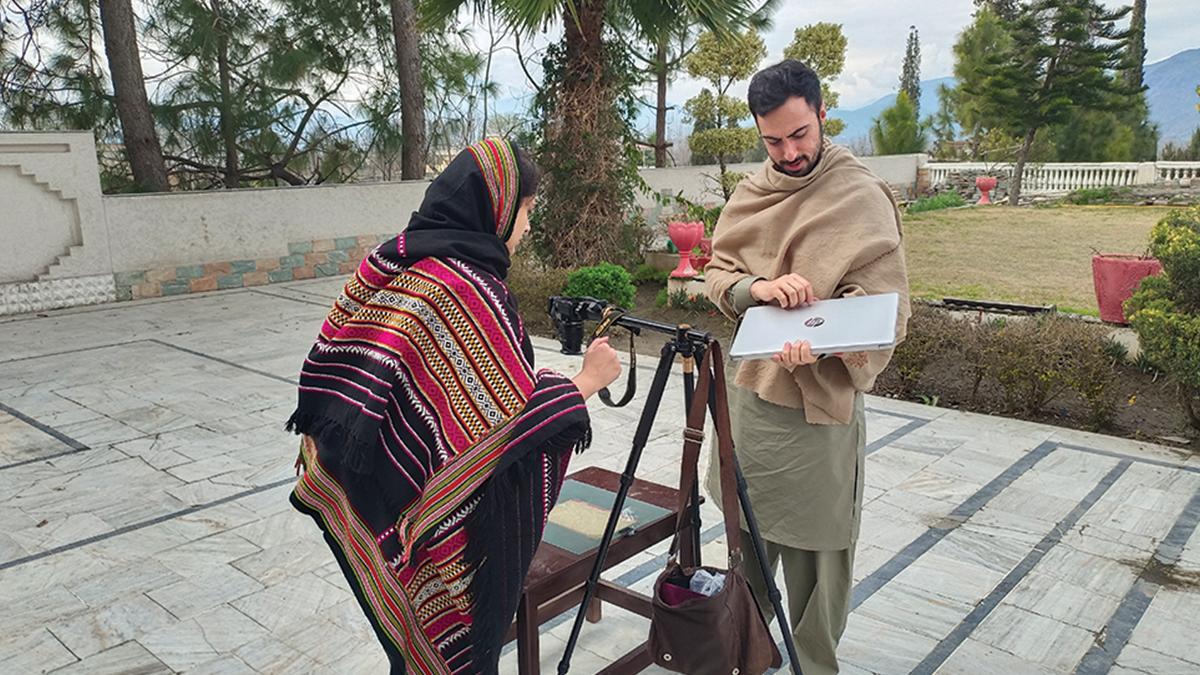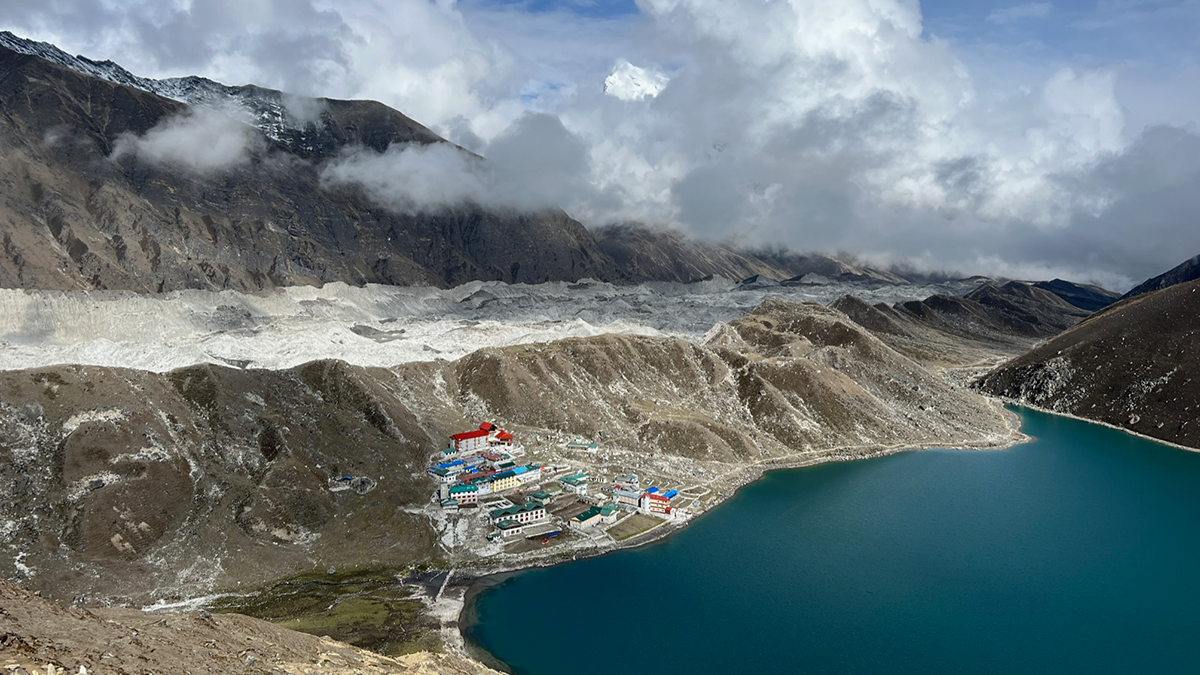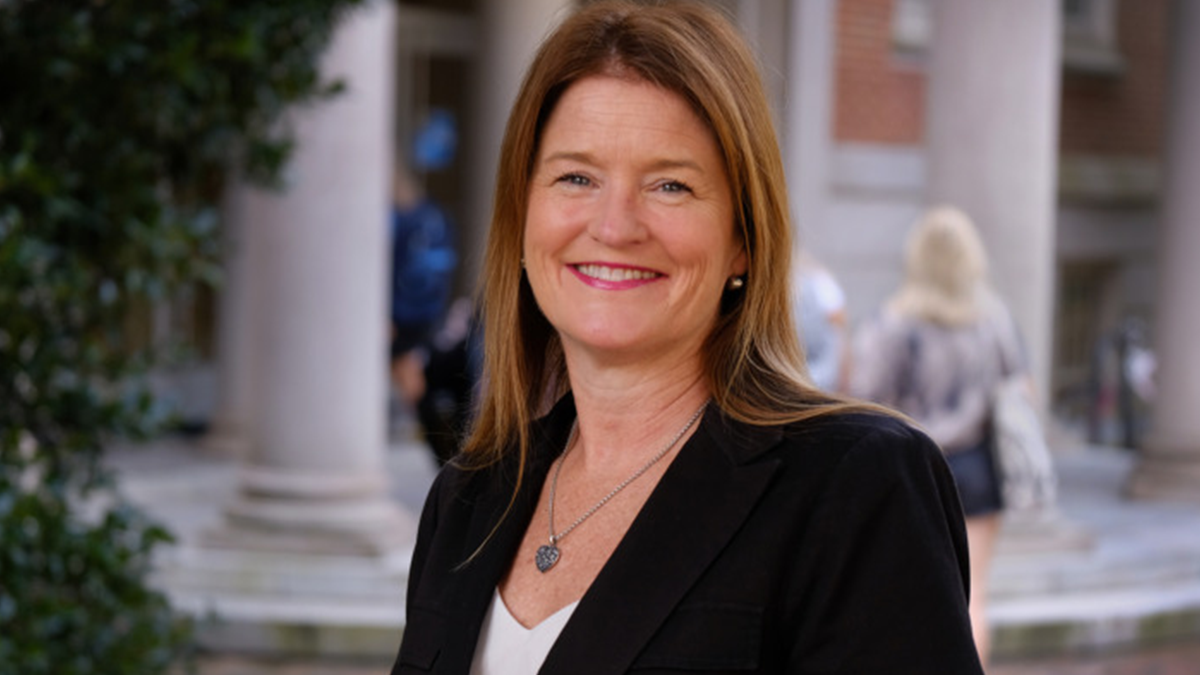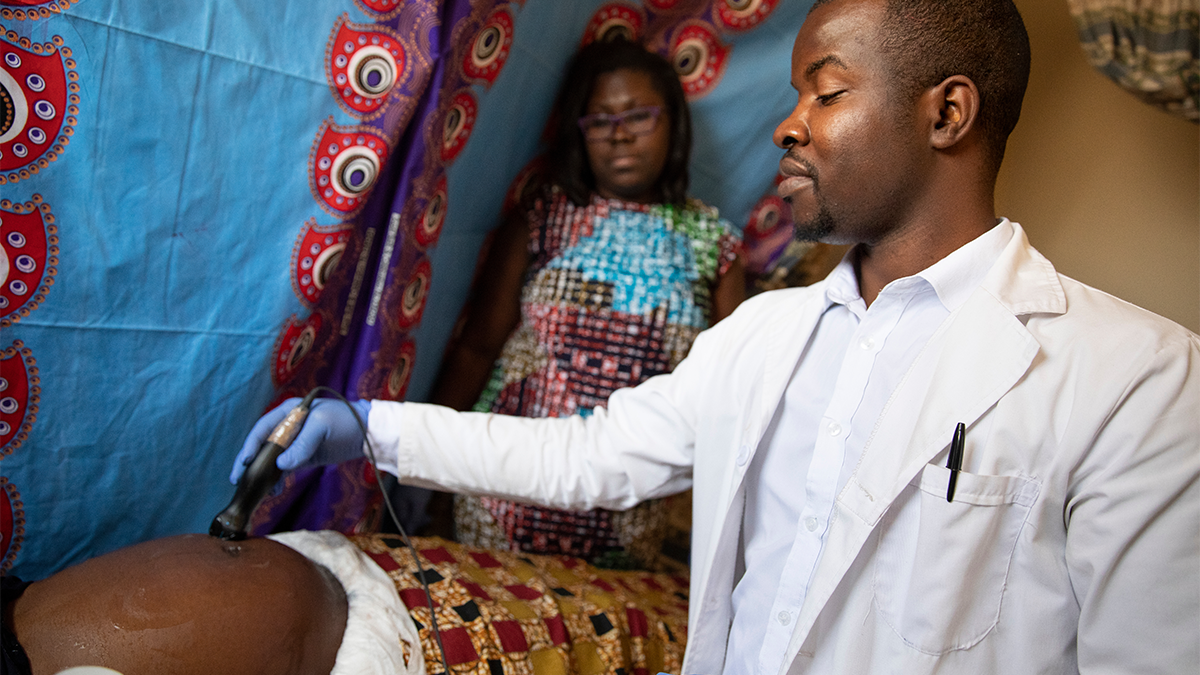‘I Can’t Believe I Got To Go’
A Carolina undergraduate interested in medical anthropology received a research travel grant to conduct a comprehensive study of residential water quality and health in the Galapagos.
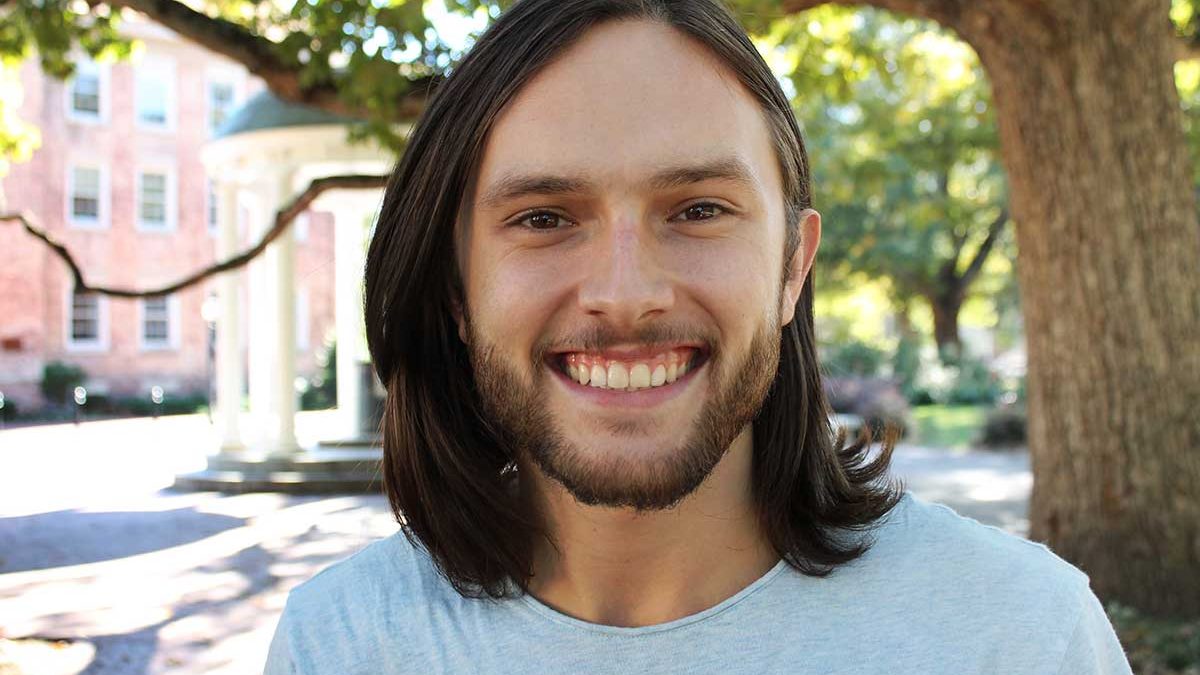
A Carolina undergraduate interested in medical anthropology received a research travel grant to conduct a comprehensive study of residential water quality and health in the Galapagos.
A Carolina undergraduate interested in medical anthropology receives a research travel grant to conduct a comprehensive study of residential water quality and health in the Galapagos.
Elijah Watson ’19 was born and raised in Collettsville, North Carolina, a small tree-farming town about 30 miles south of Boone, just as you enter the Blue Ridge Mountains. He grew up on his family’s farm cultivating trees and shrubs, and though his family had traveled around the United States, the world beyond lived only in his imagination.
Then came Carolina.
By his junior year, the Johnston Scholar and anthropology major was studying in Cape Town, South Africa. And, weeks after his college graduation in 2019, found himself in the Galapagos Islands of Ecuador.
The thread connecting all these places and experiences led to a realization that continues to shape the trajectory of Watson’s career: whether in the foothills of North Carolina or on the other side of the world, water is life.
The only institution of its kind
Watson’s UNC Study Abroad trip to Cape Town in 2017 coincided with the worst water crisis the region had faced in a century. Digital billboards counted down the days of water supply in urgent red numbers.
“I was concerned about the water shortage — not only how it was contributing to physical health, but also how people responded to not having it,” he said. “This was where I started to think about medical anthropology, how these biological factors influence the choices we make and how we feel about life.”
In summer 2019, on Isabela Island, both the largest and youngest island of the Galapagos archipelago, Watson began asking the questions he’s now spending his life trying to answer: Beyond access and sanitation, how do we define water security? What does it mean to navigate a life around seeking water, procuring it, making decisions about how to use it?
He was in the right place, at the right time.
Carolina’s Center for Galapagos Studies is anchored by the Galapagos Science Center (GSC), the only university research institution of its kind in the Galapagos. GSC is a remarkable 20,000-square-foot laboratory facility that is expanding researchers’ ability to make the world a better place by providing ways to understand island ecosystems and the social-ecological threats to sustainability.
Located on San Cristóbal Island, the GSC is the result of a collaborative partnership between UNC-Chapel Hill and the Universidad San Francisco de Quito (USFQ) in Ecuador. The center is where the universities partner on research, education and outreach programs to advance science and conservation efforts in the Galapagos — and the lessons learned there promote a better understanding of ecologically sensitive and protected areas worldwide.
“The growing human population, including residents and tourists, is now threatening the future of this archipelago — its resources, ecological fragility and human-environment interactions that exist in this charismatic place,” said Stephen J. Walsh, Ph.D., Lyle V. Jones Distinguished Professor of Geography and director of the Center for Galapagos Studies and GSC.
With the threats associated with population growth and economic development placing the Galapagos Islands in crisis, and the Ecuadorian government and UNESCO declaring an ecological emergency for the islands in 2010, the Galapagos initiative underscores the critical importance of understanding the complex interactions between people and environment.
“Residents, visitors and managers of the Galapagos are now very aware of their ecological site and situation, and we can see the behavior changes as they learn, adapt and live first-hand,” noted Walsh. “And, North Carolina has many of these same challenges, including the development of the coast and our islands. We share some of the same contentious questions: How much development is warranted before the environment degrades? What are the impacts of hurricanes and other social or ecological disturbances on ecosystem goods and services? How is climate change affecting coastal areas, land use and land cover patterns on islands? There are so many similarities.”
How should we define water insecurity?
Following his trip to South Africa, Watson applied for the undergraduate research training program at the Carolina Population Center with Amanda Thompson, Ph.D., who holds faculty appointments in both nutrition at the UNC Gillings School of Global Public Health and anthropology at the UNC College of Arts & Sciences.
Thompson studies how water and food quality in the Galapagos affect nutritional intake, infectious diseases, obesity and diabetes. She leads field research for students each summer in the Galapagos, and last summer was a turning point in her research, thanks in part to Watson.
In Thompson’s lab, Watson had spent his senior year learning to analyze her team’s research data. He wrote his honors thesis on how socioeconomic factors impact diet quality in the Galapagos. Thompson relied on the index model he developed for diet quality variables in her subsequent analyses.
“This year was really a pinnacle for me in the work I’m doing there, because I had students who were starting to think about water and physical and mental health,” shared Thompson. “We had undergraduates, graduate students, and students and faculty from USFQ all thinking about this intersection of water and health in a different way.”
Watson and three other Carolina undergraduates were awarded research travel grants to do their own field work on Isabela Island, going from plane to boat to yet another boat with large boxes of equipment. And, with the collaboration of colleagues at USFQ, working with the community to conduct a comprehensive study of residential water quality and health.
Alongside researchers from USFQ and two Carolina graduate students, the four undergraduates collected water samples from nearly 30 homes on the island. They shipped these samples daily via airplane to the GSC, as well as blood spots and body measurements from families. They also surveyed the families to learn how they felt about water — the taste, the smell, the worry, or lack of worry, surrounding its impact in their daily lives.
“We found that the tap and drinking water we tested in homes was generally of good quality in terms of e. coli. But the broader water situation was more complicated,” Watson said. “The island’s reservoir isn’t big enough to supply treated water to residents all the time, so ground water is coming through their faucets for most of the day. The town offers large bottles of treated water for the homes, but at an extra cost. If you can access water, and it isn’t all that clean, but it’s not necessarily full of dangerous pathogens like e. coli, though you still need to boil water or buy water to feel confident about drinking it . . . do you have water security?” he asked.
“The big question then, is, does that uncertainty contribute to anxiety and impact mental health? Are they worried about their health? These are the things I want to explore in my future research.”
“Our ability to do this is incredibly special,” added Thompson. “The research infrastructure is all there, and we have relationships with our colleagues in Ecuador, a network of other researchers to partner with. We’ve been able to work closely with the hospital there, and our colleagues have helped us with access to people there to invite them to participate in our work.”
A vision of globalized learning
“This level of collaboration is the way Carolina is wired to work,” said Walsh.
The center is a hub of what he calls Carolina’s “vision of globalized learning” and has been a signature example of the kind of two-way street global learning should be. In-depth, comprehensive research surrounding the challenges faced by the Galapagos Islands — the social-ecological threats to the natural infrastructure, the health and well-being of people, animals and ecosystems there, an ever-changing global environment — will benefit the preservation of protected areas all over the world.
“One of our greatest strengths is how we work in an interdisciplinary way to solve problems,” Walsh continued. “We already lead in research that engages natural, social, spatial and computational sciences. We’re uniquely suited for this role, and we’re the only university that has it.”
Nearly 67 faculty members have research projects in the Galapagos, ranging from air quality to marine sciences, geography and agriculture, obesity, education, maternal and child health, nursing and more. Students participate in on-site research more and more, and Walsh is continually looking for ways various academic departments can make work in the Galapagos part of their curricula.
“That Carolina gets to be the only university with this kind of partnership with USFQ is an opportunity that I definitely don’t take for granted,” said Watson, who has been accepted into a number of Ph.D. programs in anthropology and is choosing the school where he’ll continue his research.
“Galapagos is such a unique and special place to experience as a student. I can’t believe I got to go.”

